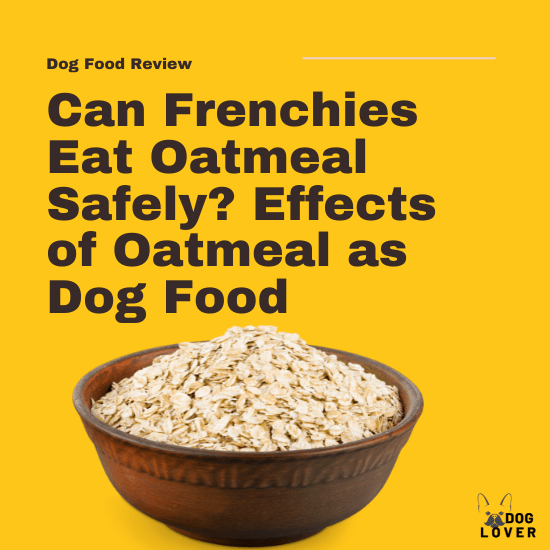Can Frenchies eat pineapples?
They are the most refreshing fruits, but can Frenchies have them?
You may have asked yourself this question while enjoying this hydrating fruit with your pooch staring at you making you wonder whether pineapples are safe for dogs.
This article will enlighten you on the benefits or harms of pineapples on Frenchies.
Let’s dive in
Can Frenchies eat pineapples?
Yes, Frenchies can eat pineapples as they hydrate and contain vitamin C and manganese for improved immunity and tissue formation.
However, you should not give Frenchies canned pineapples as they have lots of sugar.
Pineapple Nutritional Facts
Pineapples are rich in antioxidants like flavonols and phenolic acids that protect from free radicals that cause cancer and asthma.
Pineapple contains bromelain enzyme, which breaks down proteins making digestion easier.
This fruit has lots of potassium which lowers blood pressure levels, thus promoting heart health.
What are the Benefits of Pineapple to Frenchies?
Rich in antioxidants
Pineapples contain antioxidants like flavonols and phenols, which protect them from oxidative stress that leads to inflammatory diseases like cancer and loss of vision.
These antioxidants aid in repairing destroyed cells and promoting new cell formation
Bromelain aids in the digestion process by breaking down proteins into amino acids
Rich in essential vitamins
Pineapple is a powerhouse of vitamins like vitamin A, C, and B6 responsible for lustrous skin and a shiny coat, protection from infections, and brain health.
Moreover, pineapple contains vitamin E and K that protect your dog from inflammation and ensure a fast blood clotting process.
Hydration
Pineapple has a high water content which ensures your Frenchie remains hydrated.
Proper hydration also promotes bowel health, regulates blood pressure and heart rate, and promotes joint health.
In addition, water helps flush out toxins from the body and carries essential nutrients and oxygen throughout the body.
Excellent source of minerals
Pineapples are rich in minerals, including magnesium, manganese, calcium, iron, and potassium.
Magnesium and manganese are essential for blood sugar regulation and tissue formation.
On the other hand, calcium is responsible for strong bones, while iron lowers the risk of anemia.
In addition, potassium ensures low blood pressure and reduces the risk of cardiovascular diseases.
What are the harms of pineapples to dogs?
High natural sugar content
Although natural sugar may not be harmful to dogs, consuming it in large amounts can result in diabetes and obesity.
Dogs who have previously shown allergic reactions to high sugar are at risk.
Canned pineapple
Canned pineapple is a refreshing summer treat.
However, it contains a lot of added sugar and syrup, which cause stomach upsets in the short run.
Regular intake leads to chronic conditions like diabetes, heart conditions, and obesity.
Skin, crown, and core,
These Pineapple parts are hard to digest and can cause stomach upsets, choking, and blockage, leading to death.
Which Pineapple Parts and Recipe Are Safe for Dogs
Pineapple skin
Pineapple skin is a hard chew hence promoting dental health.
However, Frenchies cannot eat it as it can be a choking hazard and cause fatal blockage.
Canned pineapple
Canned pineapple is a welcome treat during summer as it hydrates.
But it contains a lot of added sugar and syrup, which can lead to diabetes, obesity. and heart problems
Pineapple leaves
Pineapple leaves to aid in wound healing.
However, your Frenchie should not eat them as they are sharp and hard to chew on, thus causing bowel problems and mouth wounds.
Pineapple cores
Pineapple core is rich in fiber hence promoting bowel health.
For your dog to benefit from it, cut it into small pieces and observe as it can be a choking hazard.
Pineapple juice
A sip of pineapple juice instantly removes fatigue.
However, it should not be a regular treatment as it has lots of sugar which causes health problems like diabetes and obesity.
Dried pineapples
They are rich in insoluble fiber, boost digestion, and make dogs feel full quickly, thus lowering the risk of obesity.
Before serving, ensure it has no artificial additives or preservatives.
Pineapple cake
You can treat your dog to a homemade pineapple cake as it controls the ingredients.
Avoid processed cake as it has harmful additives and preservatives, including xylitol.
Frozen Pineapples
They are not only tasty, but they encourage Frenchies to chew on them for longer, thus promoting dental health by lowering plaque build-up.
In addition, they are a refreshing summer treat.
Pineapple Pizza
Dogs can safely enjoy a bite of pineapple pizza as it is mainly made from a natural fresh pineapple.
As a result, it contains all the benefits found in fresh pineapple.
Pineapple ice cream
Evening walks during summer call for this refreshing treat as it provides instant relief from tiredness and fatigue.
But you should serve which caution as your Frenchie can be lactose-intolerant
How to Feed Pineapple to Frenchies
- Clean the pineapple
- Remove the skin and core
- Cut into bite-size pieces
- Serve raw
- Freeze the sliced pineapple
- Make a fruit salad by adding to other fruits like bananas
- Make pineapple juice
- Give your Frenchie pureed pineapple
- Grill the pineapple
- Blend with plain yogurt to make a smoothie
- Dehydrate it
Quick and Fun Recipe You Need to Try
Gluten-free pineapple treat recipe
Ingredients
- 2 cups oat flour
- ½ cup coconut
- 1 ripe banana
- 4 ounces ripe pineapple
- 2 tablespoons coconut oil
Procedure
- Preheat oven to 350 degrees
- Line two baking sheets with parchment paper
- In a bowl, mix oat flour and coconut flour
- Blend the banana, pineapple, and coconut oil until smooth
- Mix the dry ingredients and the wet ones using a fork
- Knead until the dough is smooth
- Sandwich the dough ball between the parchment papers and roll to a quarter inch
- Bake for 30 minutes
- Remove from oven and place in a wire rack
- Serve at room temperature
What else can Frenchies eat with pineapples?
Mangos
Like pineapples, mangoes are a welcome summer treat.
They are rich in vitamins A, B6, C, and E, responsible for a thick skin and shiny coat, brain health, improved immunity, and protection from free radicals.
In addition, mangoes contain minerals like potassium for flushing out toxins from the kidney.
Furthermore, beta carotene in mangoes is essential for eye health.
Coconut
Coconut has a wide range of uses, from grooming to a sweet treat for hot seasons.
It has essential minerals like manganese for strong and healthy bones and breaks down proteins and carbohydrates.
Other minerals like iron and copper for red blood cell formation and improved immunity
Coconut is also an excellent source of polyphenols that protect from toxic radicals.
Furthermore, coconut is rich in fiber and fats but low in carbs, thus regulating blood sugar levels.
Melon
This fruit contains over 90% water hence an excellent dog treat in hot seasons.
The water also aids in flushing out toxins from the body and promotes bowel functions.
Melon also contains vitamin B1 and B6 for improved vision, while vitamin A promotes heart functions and a smooth coat.
Strawberries
This delicious treat is also suitable for summer as it hydrates your dog.
They are low in calories and contain fiber, making dogs full faster, thus lowering the risks of obesity.
They are also rich in calcium and vitamin K for thick bones and muscles and blood clotting.
Cottage cheese
Cottage cheese is a tasty snack for Frenchies.
It contains low fat compared to other types of cheese hence suitable for maintaining a healthy weight.
Moreover, cottage cheese has low sodium content, thus lowering the risk of dehydration.
Furthermore, it is rich in calcium for bone health and thick muscles.
How many pineapples can a Frenchie eat in a day?
The amounts given to dogs depend on weight and health conditions.
The following is a guide on the daily pineapple intake for Frenchies:
| Weight | Amount |
| 10- 30 lbs Frenchie | 2 tablespoons bite-size pieces |
| 30- 50 lbs Frenchie | 4 one square pieces |
| 50 lbs and above | ½ cup bite-size pieces |
Does pineapple have too much sugar for dogs?
Yes, pineapple contains lots of natural sugar, which can cause diabetes if you give your dog large amounts or frequently.
The high sugar content can also cause bite-size canine obesity.
Are pineapple thorns harmful to dogs?
Yes, pineapple thorns are harmful to dogs as they are hard to chew on and digest, thus causing stomach upsets, choking, and blockage.
Serve your Frenchie the fleshy part only.
Can baby dogs (puppies) eat pineapples?
Yes, puppies can safely eat pineapples.
However, the amounts should be small as too much pineapple causes diabetes which can be fatal for puppies.
Give puppies pineapples sparingly and infrequently.
Can diabetic Frenchies eat pineapples?
No, pineapples contain lots of natural sugar, which may escalate the already existing diabetes in your dog.
Give other fruits like watermelon, which have the same benefits but contain less sugar.
Can a nursing dog eat pineapples?
Yes, pineapples contain minerals like calcium necessary for the growth and development of strong bones and muscles for a nursing dog.
Vitamin C boosts immunity, while vitamin A gives smooth skin.
Can pineapple help with diarrhea in dogs?
Yes, pineapple can help with diarrhea in dogs.
Bromelain in pineapples has antibacterial features that protect from diarrhea.
However, consuming in large amounts can cause diarrhea due to high fiber.
Final Thoughts
As a pet parent, you know the tingling feeling that comes with seeing your dog refreshed with lustrous and shiny skin.
Pineapple is responsible for such happiness as it contributes to the overall growth of Frenchies.
Although Pineapples have many health benefits, you should serve them with caution as they have lots of natural sugars, which can cause diabetes and obesity if taken in large amounts or frequently.
Avoid pineapple cores and skin as they are a choking hazard and can cause blockage.
As a general rule, never introduce new foods and fruits before consulting the vet.


